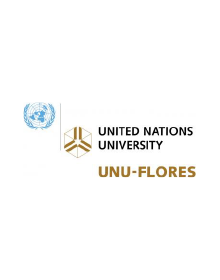
The main objective of this PhD programme is to provide graduate students with detailed knowledge, critical understanding, strategies and tools to take an interdisciplinary and integrated approach towards the management of water, soil and waste.
The joint PhD programme aims at creating a new generation of environmental scientists, engineers and managers to conduct, promote and provide guidance on the sustainable management of water, soil and waste. These resources and their sustainable management are of concern to the United Nations and its member states, particularly to developing countries and emerging economies.
Due to the focus on integrated management of water, soil, and waste, UNU-FLORES’s research is mainly – but not exclusively – relevant for
- SDG 2 (Zero hunger), e.g., related to sustainable intensification of agriculture, including safe use of wastewater in agriculture, the integration of organic waste into small-holder farming or water productivity in irrigated agriculture;
- SDG 6 (Clean water and sanitation), e.g., related to water quality indicators and monitoring, nature-based solutions for wastewater treatment, monitoring of rural water supply systems or groundwater quality in wastewater treatment systems;
- SDG 11 (Sustainable cities and communities), e.g., related to decision support frameworks for water resources management;
- SDG 12 (Responsible consumption and production), e.g., related to integration of organic waste and wastewater into biomass production, nexus-oriented waste management;
- SDG 13 (Climate action), e.g., related to climate impacts on water and soil management and respective climate adaptation strategies;
- SDG 15 (Life on land), e.g., related to managing multifunctional land-use systems to secure soil- and water related ecosystem services, particularly in dryland areas;
- SDG 17 (Partnerships for the goals), e.g., working with consortium partners to address the challenge of drought risk monitoring.
Research projects may address these issues from various perspectives in an interdisciplinary and transdisciplinary manner, using a broad range of approaches and methods and building on a diverse set of both quantitative and qualitative data. Typically, our research projects are implemented with additional partners in respective member states or from international organizations, universities, and research institutions; PhD research should follow this model.
